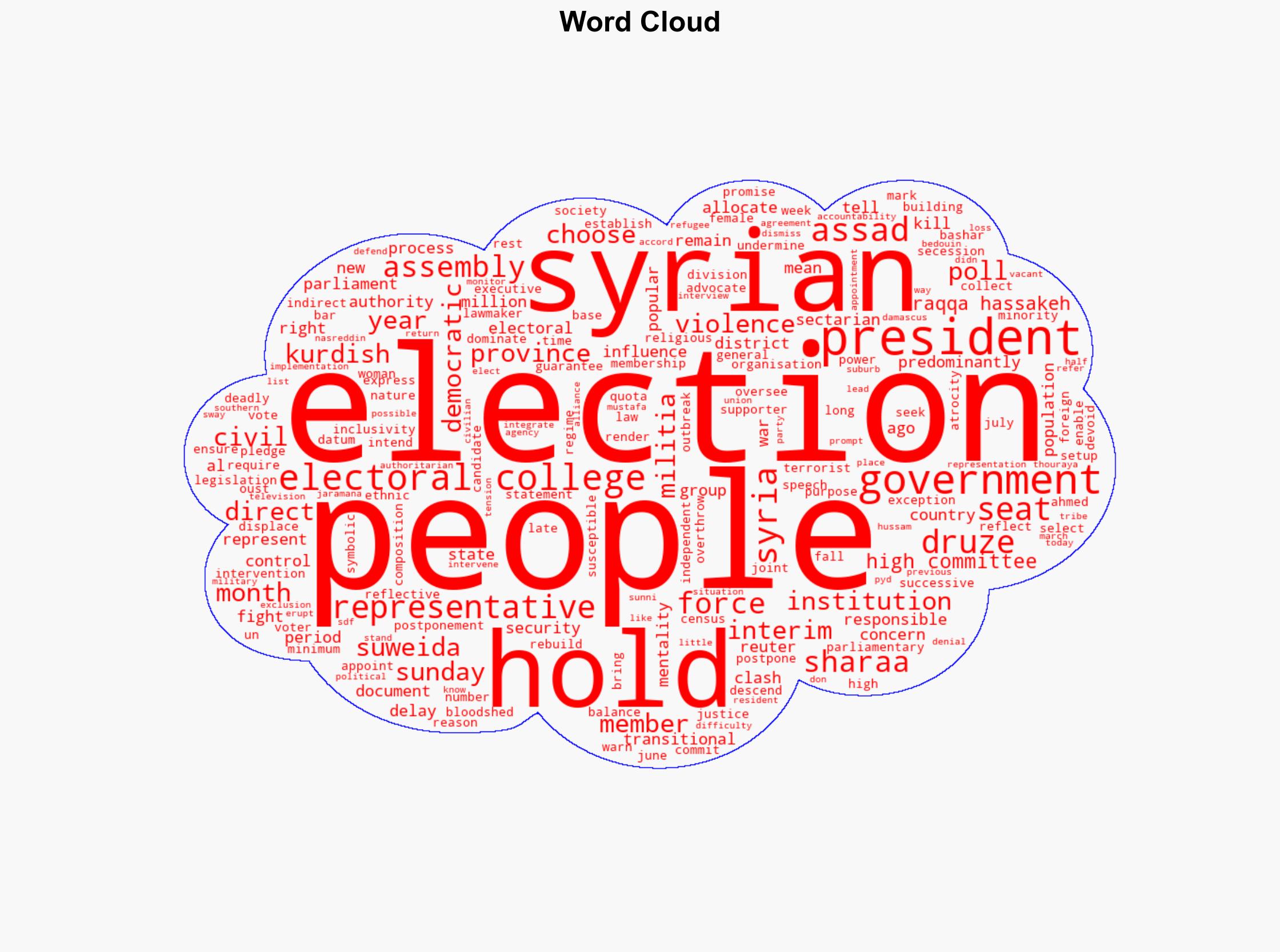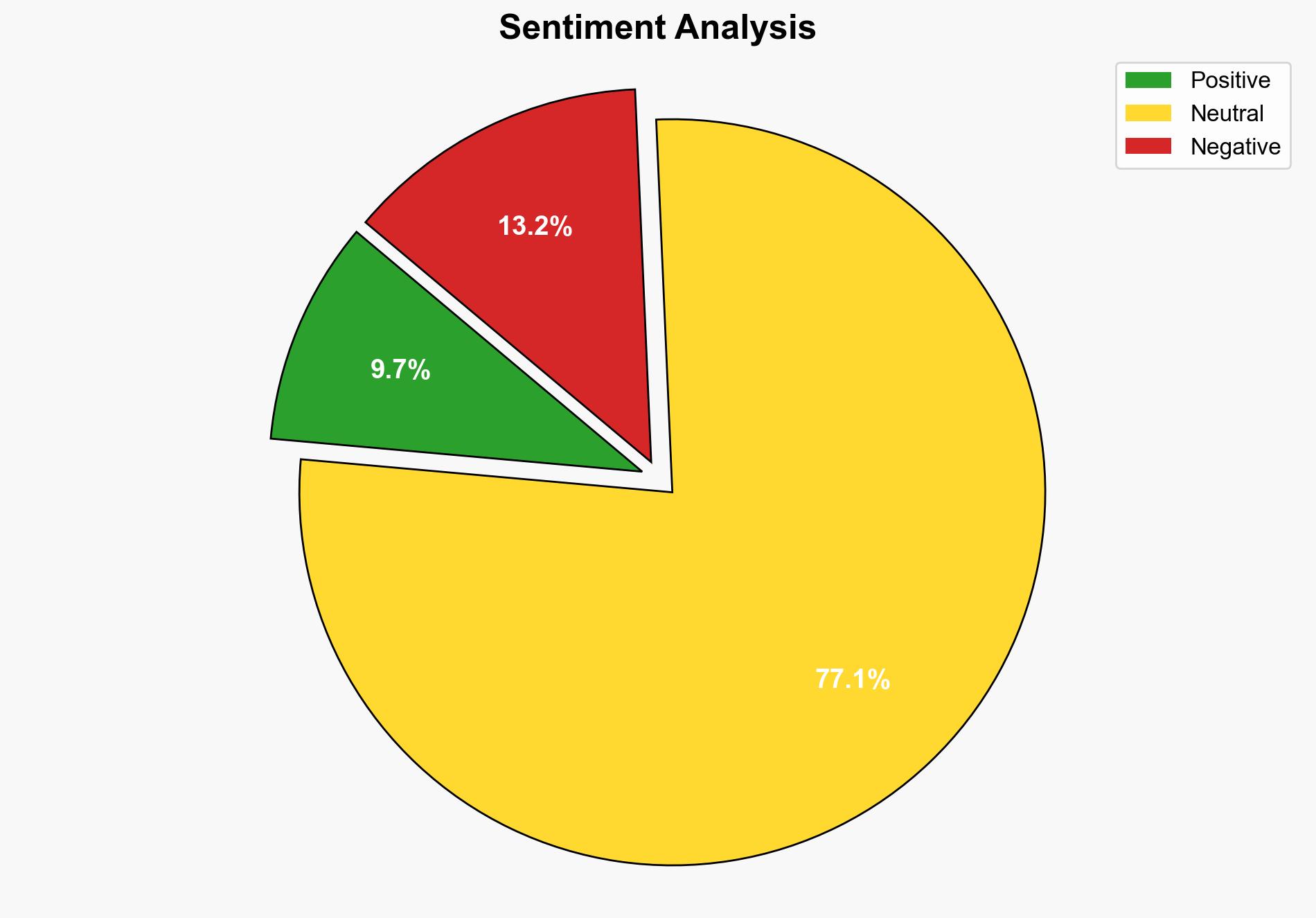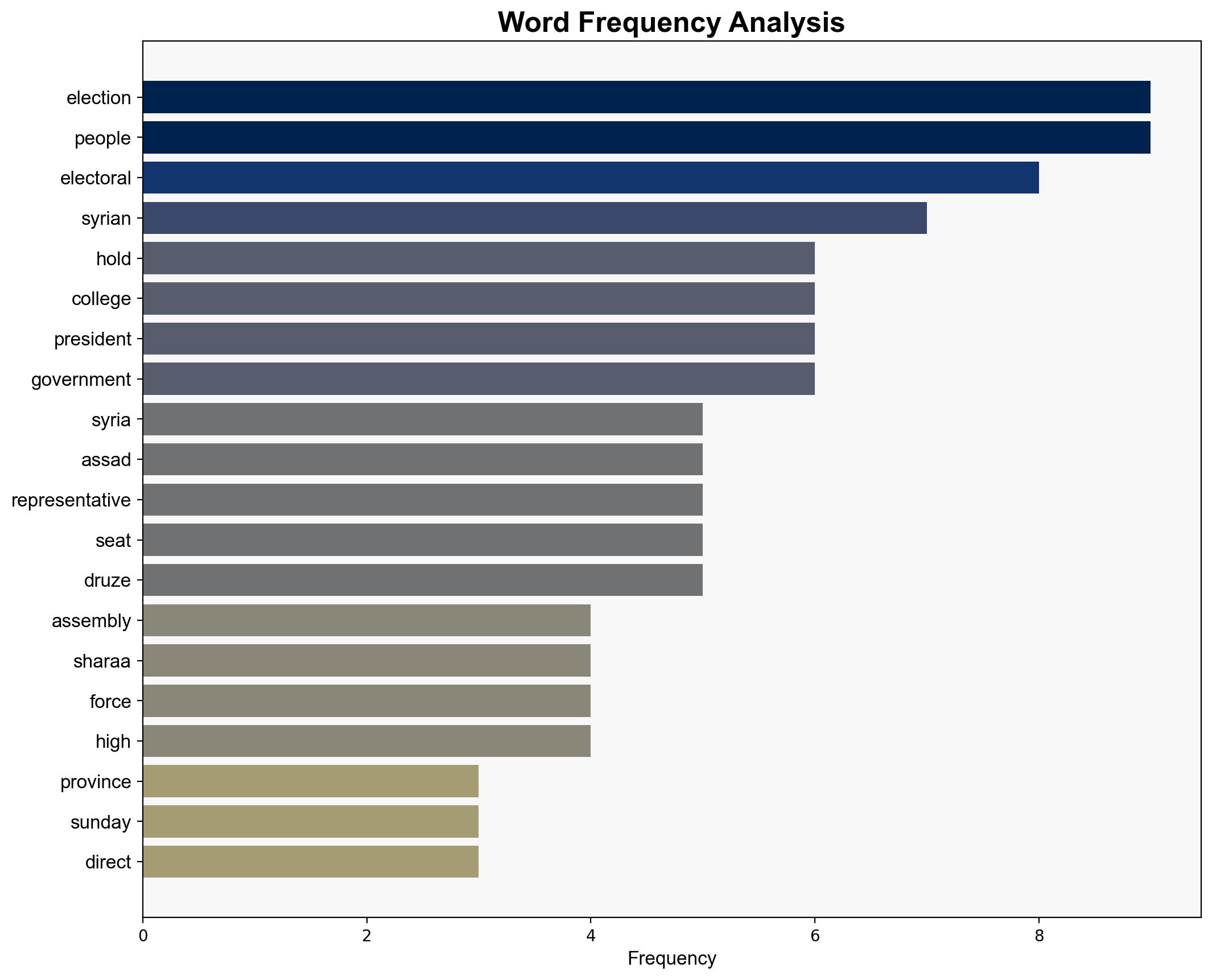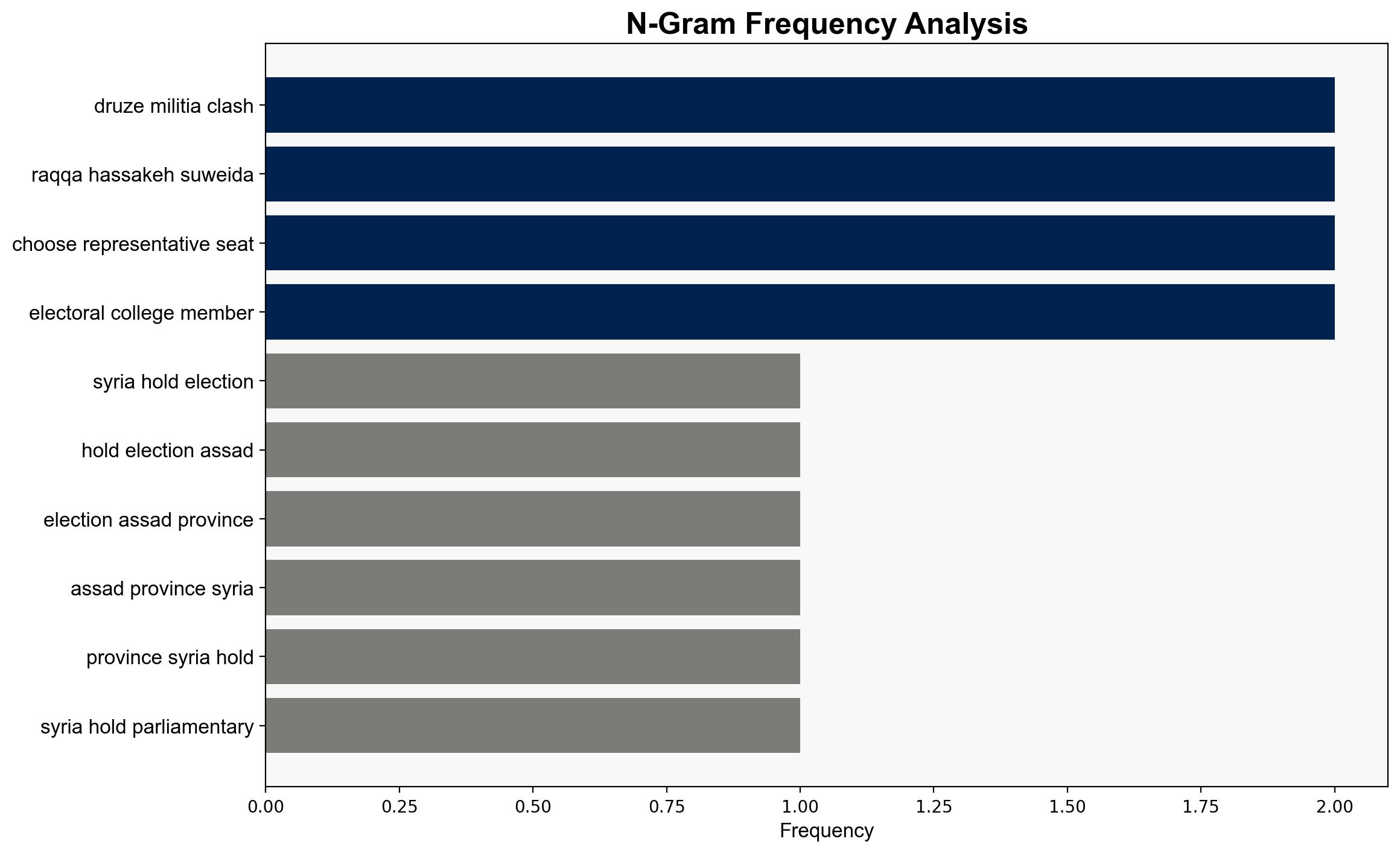Syria holds first elections since Assad but not in all provinces – BBC News
Published on: 2025-10-05
Intelligence Report: Syria holds first elections since Assad but not in all provinces – BBC News
1. BLUF (Bottom Line Up Front)
The most supported hypothesis is that the Syrian elections are primarily a symbolic gesture to maintain a semblance of legitimacy for the current regime, rather than a genuine democratic process. The elections are heavily influenced by the executive authority, undermining their representative nature. Confidence level: Moderate. Recommended action: Monitor developments for shifts in regional power dynamics and potential unrest, particularly in Kurdish-controlled areas and among the Druze population.
2. Competing Hypotheses
1. **Symbolic Legitimacy Hypothesis**: The elections are a strategic move by the Syrian regime to project an image of stability and legitimacy both domestically and internationally, despite the lack of inclusivity and genuine democratic processes.
2. **Genuine Reform Hypothesis**: The elections represent a genuine attempt by the Syrian government to transition towards a more inclusive and democratic political system, albeit hindered by security concerns and regional instability.
Using the Analysis of Competing Hypotheses (ACH) 2.0, the Symbolic Legitimacy Hypothesis is better supported due to the high degree of control by the executive authority, exclusion of opposition groups, and the non-participation of key provinces.
3. Key Assumptions and Red Flags
– **Assumptions**: The regime’s control over the electoral process is assumed to be complete, and the exclusion of certain groups is deliberate.
– **Red Flags**: The absence of elections in key provinces like Raqqa, Hassakeh, and Suweida raises questions about the inclusivity of the process. The influence of the electoral college and potential manipulation by the regime are significant concerns.
– **Blind Spots**: Lack of detailed information on the internal dynamics of the electoral college and the true extent of opposition influence.
4. Implications and Strategic Risks
– **Geopolitical Risks**: Continued exclusion of Kurdish and Druze populations could exacerbate regional tensions and lead to further sectarian violence.
– **Economic Implications**: Ongoing instability may deter foreign investment and aid, hindering reconstruction efforts.
– **Psychological Impact**: Perceived illegitimacy of the elections may increase disenfranchisement and radicalization among marginalized groups.
5. Recommendations and Outlook
- Monitor Kurdish and Druze regions for signs of unrest or escalation in violence.
- Engage with international partners to advocate for more inclusive political processes in Syria.
- Scenario Projections:
- **Best Case**: Gradual reforms lead to increased political inclusivity and stability.
- **Worst Case**: Sectarian violence escalates, leading to further fragmentation and conflict.
- **Most Likely**: Continued symbolic elections with limited reforms, maintaining the status quo.
6. Key Individuals and Entities
– Bashar al-Assad
– Ahmed al-Sharaa
– Thouraya Mustafa
– Hussam Nasreddin
7. Thematic Tags
national security threats, regional focus, political stability, sectarian violence




